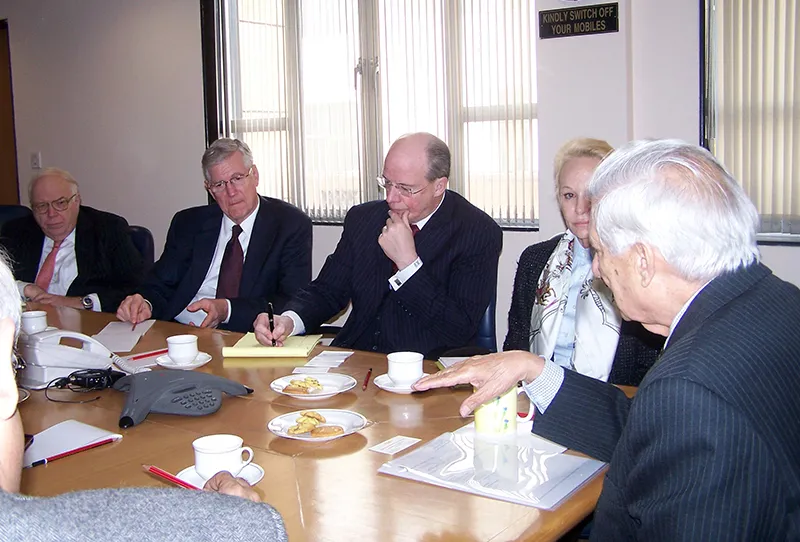-
CENTRES
Progammes & Centres
Location
Discussions between the American Foreign Policy Council (AFPC) and the Observer Research Foundation (ORF) also saw a general agreement that the Taliban victory in Afghanistan will lead to a civil war with disastrous consequences for Pakistan

Guaranteeing Afghanistan’s neutrality is a major prerequisite for its long term stability. Afghanistan’s neighbours – Central Asian Republics, Iran, China, Russia, India and most importantly, Pakistan -- must jointly pledge non-interference. This will not only proscribe future ‘great games’ being played out in Kabul, but will also ensure security and stability in Afghanistan.
These were some of the conclusions of a discussion between the American Foreign Policy Council (AFPC) delegation, comprising General Richard Bowman Myers, Dr. William Schneider and Dr. Herman Pirchner, and the Observer Research Foundation faculty at the ORF campus on Friday, January 22, 2009.
There was a general agreement during the discussions that the Taliban victory in Afghanistan will lead to a chaotic civil war with disastrous consequences for Pakistan, regional and international security.
The US delegation was briefed about India’s understanding of the ground situation in Afghanistan. The Taliban were on the rise and increasingly threatening northern Afghanistan. By leveling serious charges of corruption, nepotism and electoral rigging, the US had seriously compromised the Karzai government which, on the whole, remains the only viable option against the Taliban takeover. More importantly, Pakistan continues to be the fulcrum of terror and therefore any hope of stability in the region will greatly depend on Pakistan Army’s equation with terrorist groups active there.
The delegation stressed that the US mission’s priority on securing the population was compatible with the current troop level. It was also stressed that President Barack Obama’s declaration of withdrawing troops by July 2011 was a political statement, and not a policy statement. In fact, the delegation members stressed that 2011 will serve as a ‘pivot point’ for period assessments which will determine whether to decrease, or if required, increase troop levels after the 18-month deadline.
The discussion was chaired by Amb. M K Rasgotra, President, Centre for International Relations at ORF. Dr. Ajai Sahni, Director, Institute for Conflict Management; Mr. Vikram Sood, Vice President, Centre of International Relations at ORF; Amb. Dilip Lahiri, Lt Gen Vinayak Patankar, Mr. Mahendra Kumawat, Mr. Saeed Naqvi, Distinguished Fellows at ORF; Mr. Wilson John, Dr. Harinder Sekhon and Dr. Rajeswari Rajagoplan, Senior Fellows at ORF attended the discussion.
The views expressed above belong to the author(s). ORF research and analyses now available on Telegram! Click here to access our curated content — blogs, longforms and interviews.